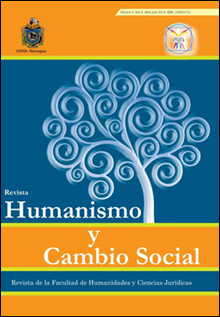NATIONAL IDENTITY AND TELEVISION: COMMUNICATION AND CULTURE POLICIES IN NICARAGUA IN THE DECADE OF 80
DOI:
https://doi.org/10.5377/hcs.v0i3.4867Keywords:
Communication policies, Identity, Television, Estate GovernmentAbstract
This paper discuss Nicaraguan communicational and cultural policies of 1980´s decade, when television was selected as a media to build national identity. Nicaragua´s case, little known in Brazil, can be integrated in an effort to understand the complexity of communications policies in Latin America. Theoretical contributions was given by identity concept, understood as resistance and fight mechanism against hegemonic values, as well as contribution to a national project. Literature review and historic method has been used to carry out this research.
Downloads
886




